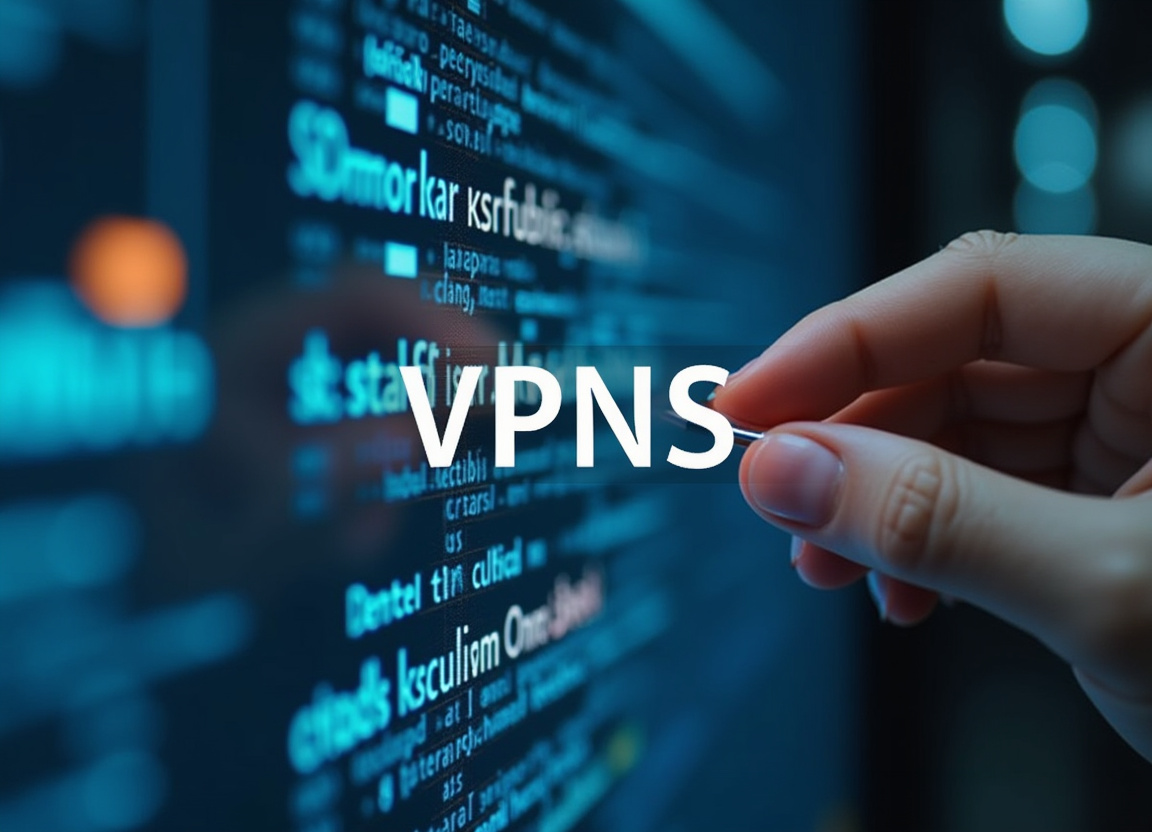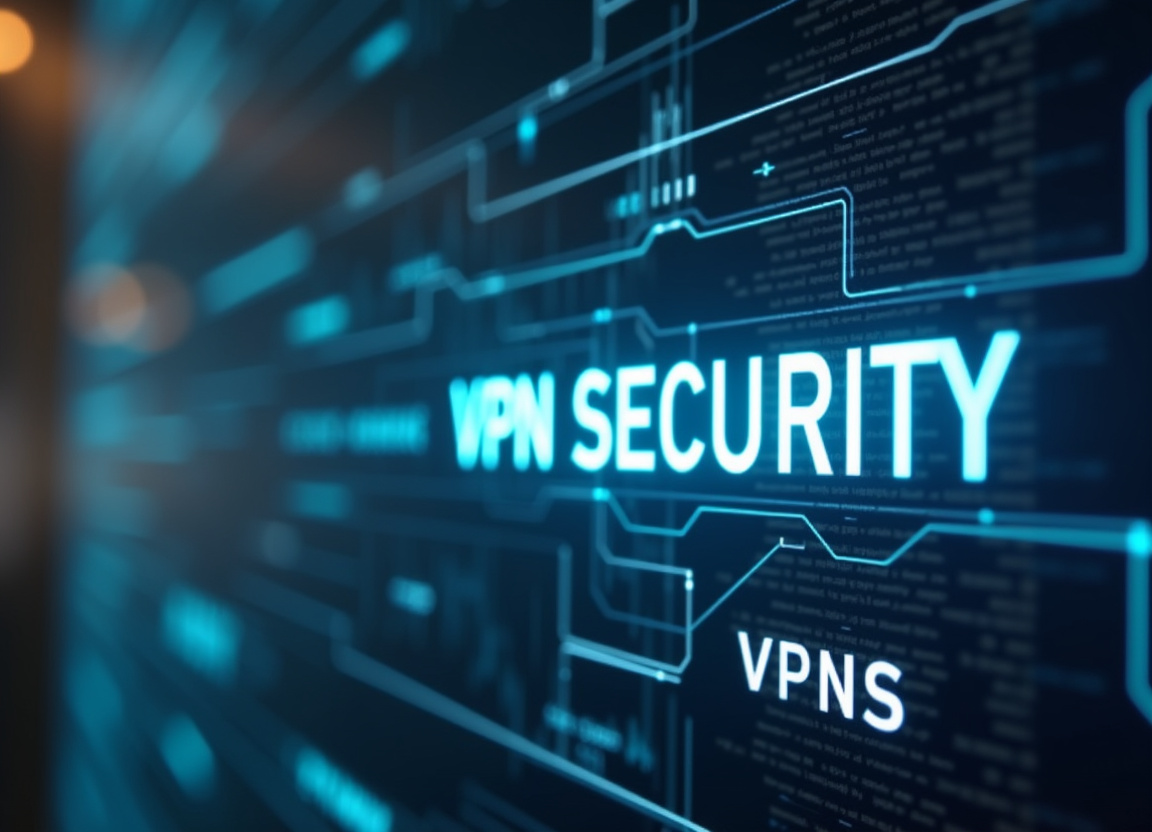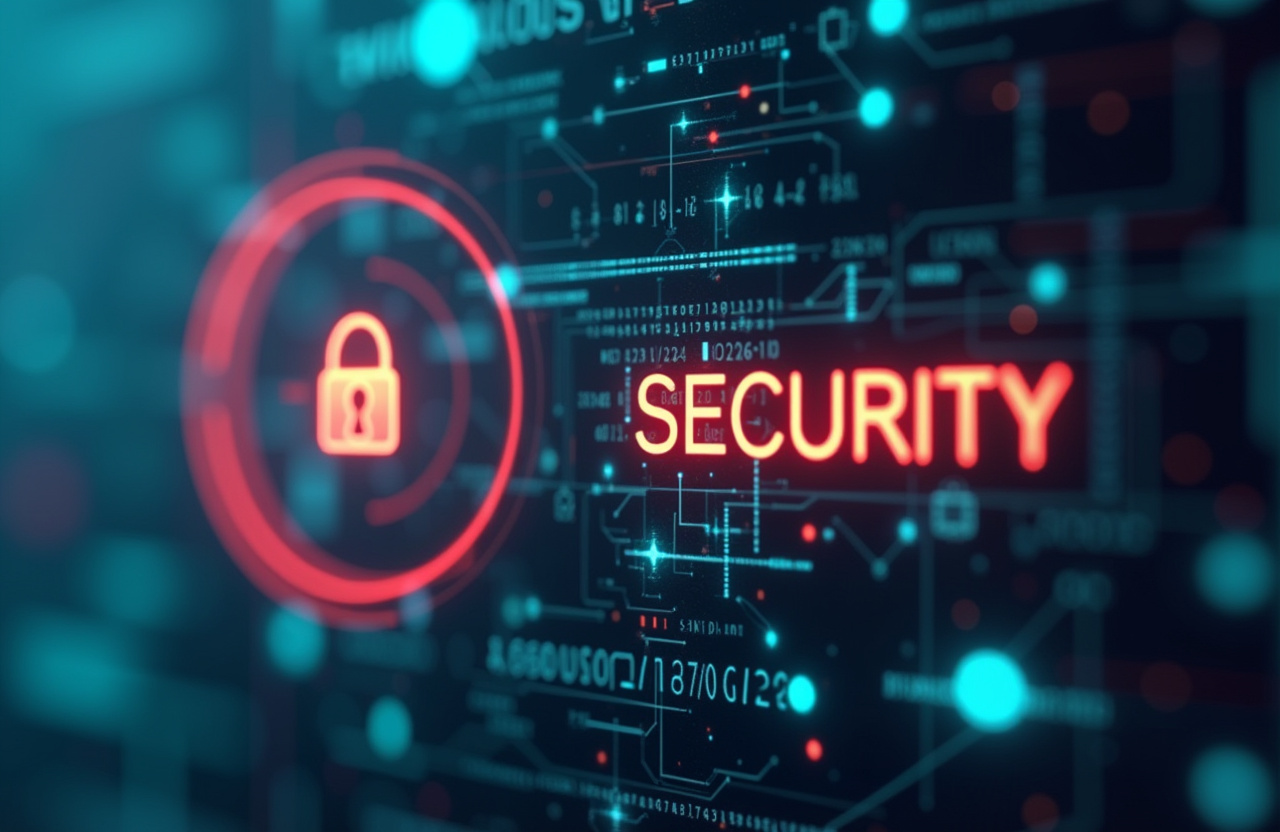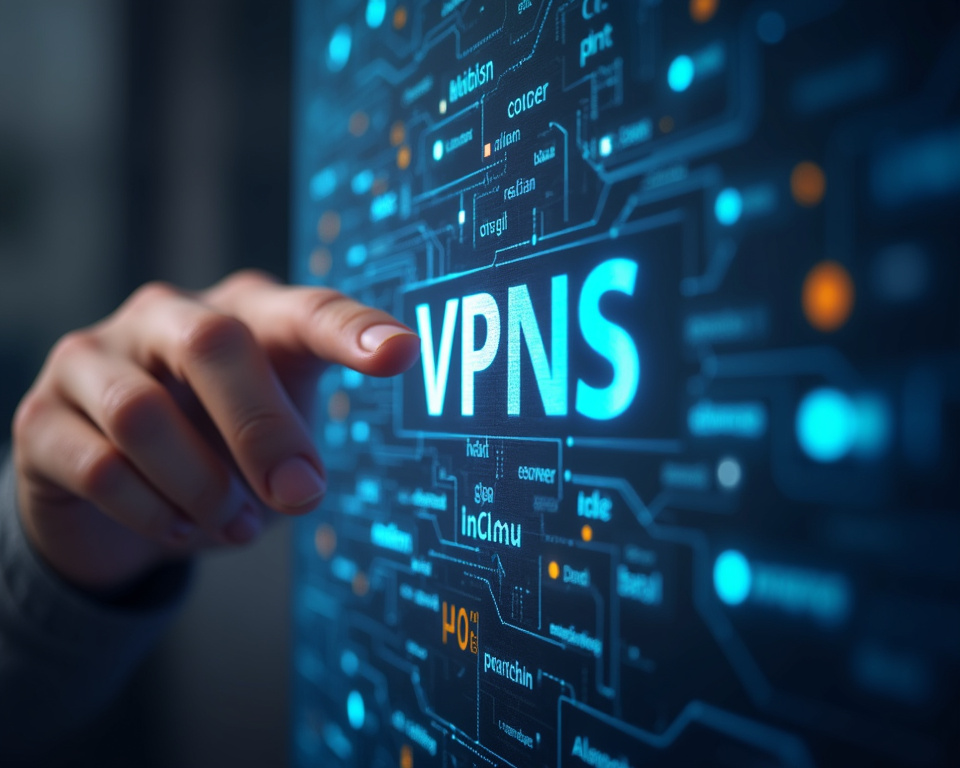VPNs for College Students: Ensuring Campus Network Security
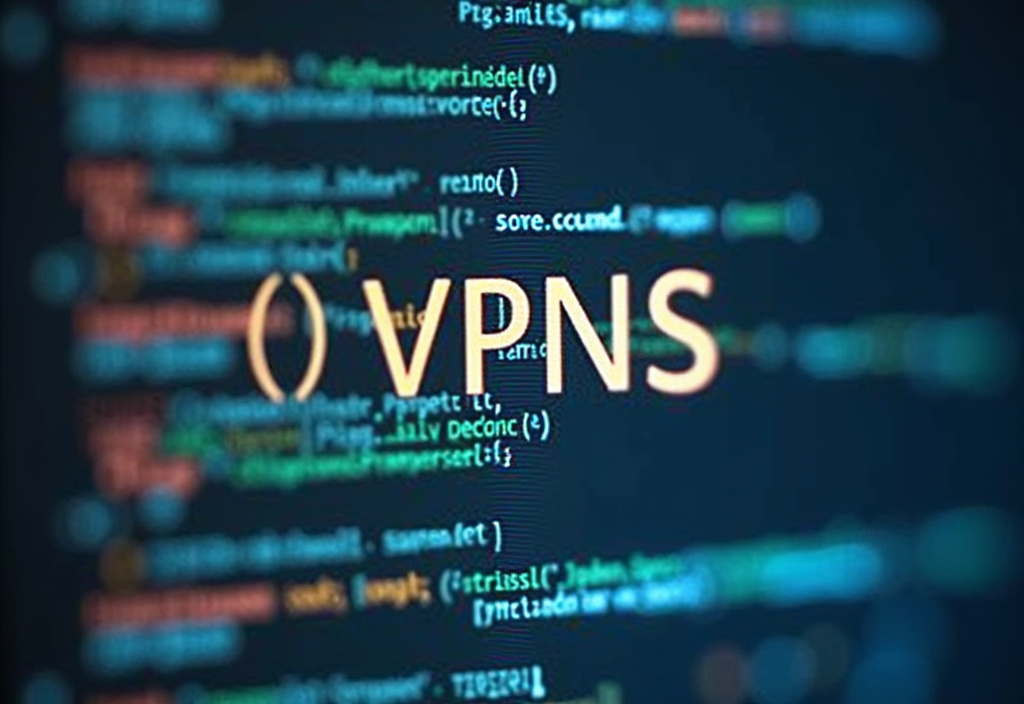
Table of Contents
VPNs for College Students: Ensuring Campus Network Security
In the rapidly evolving digital landscape, college students are increasingly reliant on technology for academic, social, and personal pursuits. This reliance, however, exposes them to a myriad of cybersecurity threats, particularly when using campus networks. While universities strive to provide convenient internet access, these networks often lack the comprehensive security needed to fully protect sensitive data.
Consequently, the concept of a 'college student VPN' has emerged as a critical tool for bolstering 'network security', ensuring robust 'data protection', and safeguarding fundamental aspects of 'student privacy'. This article delves into the importance of VPNs for college students, exploring the vulnerabilities of campus networks, the benefits of VPN usage, and the key considerations when choosing a suitable VPN service. Recognizing the inherent risks associated with public and shared networks, a Virtual Private Network (VPN) creates a secure, encrypted passage for your internet traffic, effectively shielding online activity from prying eyes.
The VPN protects you from threats and any unwanted interaction with your data. Envision a VPN as a fortified tunnel through which your online data travels, shielded from potential eavesdroppers and malicious actors. The encryption process transforms your data into an unreadable format, making it virtually impossible for third parties to intercept or decipher it.
Without this protective layer, students are susceptible to a range of security risks, including data interception, identity theft, and malware attacks. Imagine conducting online banking transactions, accessing personal email, or submitting sensitive academic assignments on an unprotected campus network. In such scenarios, your login credentials, financial information, and personal communications could be vulnerable to interception by cybercriminals lurking on the same network.
Moreover, unsecured networks can be easily exploited to distribute malware, which can infect your device and compromise your data. Your device will become part of several harmful activities when connected to that network. The consequences of a security breach can be devastating, ranging from financial losses to reputational damage.
Recognizing these potential pitfalls, proactive students are increasingly adopting VPNs as a defensive measure, empowering them to control their digital footprint and enhance their peace of mind. Selecting the right 'VPN for campus' that suits your needs is not merely a matter of convenience; it is a crucial decision that can significantly impact your online security and privacy. With a plethora of VPN options available, making an informed choice requires careful consideration of several key factors.
Encryption protocols are the backbone of any VPN service, determining the strength of the protection it provides. Look for VPNs that employ robust encryption standards such as Advanced Encryption Standard (AES) with a 256-bit key, which is widely considered to be virtually unbreakable. The server locations offered by a VPN provider also play a crucial role in its functionality.
A wide network of servers located in various countries allows you to bypass geographic restrictions, access content that may be blocked in your region, and mask your true location. Your location is exposed without any protection which leads to many vulnerabilities for the students. One of the most important is the logging policy, or the extent to which the VPN provider collects and stores data about your online activities.
To maintain true privacy, opt for a provider with a strict no-logs policy, meaning they do not track or store any information about the websites you visit, the files you download, or your online communications. Student life requires constant connection and fast speed without interruption so choosing the right VPN provider will be very useful.
The inherent vulnerabilities of campus networks stem from their often-open nature and the sheer number of users connected simultaneously, creating a complex and potentially insecure digital environment. Public Wi-Fi hotspots, commonly found in libraries, student unions, and dormitories, are particularly susceptible to security breaches. These networks often lack adequate encryption protocols, making it relatively easy for hackers to intercept data transmitted wirelessly over the network.
Imagine browsing the web or checking your email at a campus coffee shop, unaware that your data is being monitored by someone lurking on the same Wi-Fi network. Cybercriminals can exploit these vulnerabilities to steal login credentials, financial information, and other sensitive data, potentially leading to identity theft, financial losses, or other serious consequences. The problem is not just data theft.
Many shared networks are configured in ways that allow other users on the network to access shared folders and files on your computer. Without proper security configurations, this can expose personal documents, photos, and other sensitive information to unauthorized access. The risks extend beyond external threats, encompassing the potential for internal monitoring and data collection by the university itself.
While institutions have a legitimate interest in maintaining network security and ensuring compliance with acceptable use policies, concerns regarding 'student privacy' remain paramount. The ability to monitor network traffic raises questions about the extent to which students' online activities are being tracked and potentially stored. Are universities recording which websites students visit, what types of files they download, or whom they communicate with online?
While universities typically have policies in place to protect student privacy, there is always the potential for abuse or misinterpretation of these policies. In this context, a 'VPN for campus' serves as a crucial layer of protection, encrypting all data transmitted between the student's device and the VPN server. This encryption renders the intercepted data unreadable to third parties, preventing eavesdropping and protecting sensitive information from being compromised.
Even if someone were to gain access to your network traffic, they would only see encrypted gibberish, making it virtually impossible to decipher your online activities. Furthermore, a VPN can mask the student's IP address, making it significantly more difficult to track their online activities. Your IP address is a unique identifier that can be used to pinpoint your location and track your online movements.
By routing traffic through a remote server, the VPN effectively conceals the student's true IP address and replaces it with the IP address of the VPN server. This enhances anonymity and protects against targeted surveillance, both from external actors and potentially from within the university network. The use of a VPN promotes a sense of control over one's digital footprint, giving students the confidence to navigate the online world without fear of constant monitoring.
In addition to the technical aspects of network security, social engineering also plays a role in compromising campus networks. Cybercriminals may use phishing emails or other deceptive tactics to trick students into revealing their login credentials or installing malware on their devices. A VPN can help protect against these types of attacks by encrypting your internet traffic and masking your IP address, making it more difficult for attackers to target you specifically.
VPNs can also provide a warning about suspicious websites. When evaluating several VPN providers, it is important to read reviews carefully and ensure their features are as advertised and their privacy policies are sound. A VPN should be seen as an extension of the user's own security practices, not a replacement for them.
Always practice safe browsing habits.
Beyond the immediate security benefits, a 'college student VPN' offers a range of additional advantages that enhance the overall online experience, creating a more versatile and unrestricted digital environment. Many students utilize VPNs to bypass geographic restrictions and access content that may be blocked or unavailable in their current location. Streaming services, online games, and news websites often impose restrictions based on the user's IP address, limiting access to content based on geographic region.
For instance, a student studying abroad may find that certain streaming services or news websites from their home country are inaccessible. A VPN allows students to connect to servers in different countries, effectively masking their true location and granting access to a wider range of content. This can be particularly useful for students who are studying abroad or who simply wish to access content from their home country or explore content from different regions of the world.
Imagine being able to access your favorite streaming shows while studying or attending lectures from across the globe. Another significant benefit of VPNs is the ability to circumvent censorship and access blocked websites, an especially valuable asset in environments where information access is restricted. In some countries, governments impose strict censorship laws that restrict access to certain websites and online services, limiting freedom of expression and access to information.
A VPN can bypass these restrictions by routing traffic through a server in a different country, allowing students to access information and express themselves freely. Whether it's accessing blocked news websites, social media platforms, or research materials, a VPN enables students to overcome censorship barriers and engage in open and unrestricted information exchange. This is particularly important for students who are studying sensitive topics or who are engaged in political activism.
The ability to access information without censorship is a cornerstone of academic freedom and intellectual inquiry, empowering students to explore diverse perspectives and form their own informed opinions. In addition to bypassing censorship, VPNs can also protect against throttling, a practice employed by some internet service providers (ISPs) to slow down internet speeds for certain types of traffic. In order to manage its limited resources, throttling impacts the speed and reliability of specific online activities.
ISPs may throttle traffic from streaming services or file-sharing websites, which can negatively impact the online experience, causing buffering, lag, and slow download speeds. A VPN encrypts all traffic, making it difficult for ISPs to identify and throttle specific types of content. This helps ensure a consistent and reliable internet connection, regardless of the type of traffic being transmitted, allowing students to stream videos, download files, and engage in other bandwidth-intensive activities without experiencing slowdowns or interruptions.
Some VPNs offer DNS leak protection to prevent DNS requests from being sent to the user's ISP, thereby ensuring greater privacy and security. It's important to select a VPN provider that offers this feature as an additional layer of protection. This reduces the chances of your online activity being tracked and logged by your ISP.
A VPN offers security and also a better workflow. Student files such a large video files can impact the connection and by using a VPN you will be able to download faster all the necessary files that are important for you studies. There is also the concern of DDoS attacks that might be targeted to specific students and hide their IP address through the VPN will protect them.
The implementation of a 'VPN for campus' extends beyond individual usage, playing a crucial role in fostering a culture of 'network security' and 'data protection' within the academic community, creating a more responsible and secure digital environment for all. By promoting responsible VPN usage, colleges and universities can empower students to take ownership of their online security and contribute to a safer digital environment for everyone. This can involve providing educational resources on the benefits of VPNs, offering tutorials on how to configure and use them effectively, and encouraging students to adopt secure online practices in general.
Think about workshops, online guides, or even short videos that demonstrate the importance of VPNs and how to choose the right one. Educational materials can also emphasize the importance of strong passwords, avoiding phishing scams, and regularly updating software to patch security vulnerabilities. This can be implemented within orientation programs or as a component of cybersecurity awareness campaigns run throughout the academic year.
The emphasis should be on empowering students to make informed decisions about their online security rather than imposing restrictive measures or limitations. A collaborative approach, involving students, faculty, and IT staff, can help create a culture of security awareness and responsible online behavior within the campus community. Perhaps student-led security groups or workshops can promote the adoption of VPNs and share best practices for online safety.
This can involve creating a forum for students to discuss security concerns, share tips, and learn from each other's experiences. Faculty members can also play a role by incorporating security awareness into their courses and encouraging students to use VPNs when accessing sensitive academic resources. Furthermore, involving IT staff in security awareness efforts can ensure that students receive accurate and up-to-date information about the latest threats and how to protect themselves.
In some instances, universities partner and provide secure VPN services to their students. This reinforces the fact that the university takes cybersecurity serious. Colleges and universities can also promote responsible VPN usage by developing clear and comprehensive policies regarding the use of campus networks.
These policies should outline the acceptable use of VPNs, emphasizing the importance of protecting sensitive data and avoiding illegal or unethical activities. The policies should be easily accessible to all students and should be regularly reviewed and updated to reflect the changing threat landscape. The main objective is to create a culture of respecting security resources in order to use the technology that students and the institution are using.
In many situations, the university requires the use of VPN to protect the resources that the institution has. With this in mind, students must understand the importance of it. The University's IT department can implement a VPN connection when the student requests accessing specific resources so the interaction between server and college student is protected with this technology.
VPN awareness can reduce incidents from security concerns. This also protects the reputation of the high education institution making it more attractive for incoming students. Implementing the technology is only one piece of the puzzle.
It is important for the students to adopt good user habits so they fully protect their privacy. A college represents the perfect environment for students to acquire those abilities. Not only they will have a safe navigation on campus, but also those capabilities will be used during their professional career.
It also creates more value to the student that will know how to protect their data. As the student starts their professional career it is important to have these security procedures in place. When students are conscious about their online privacy, it improves the whole environment.
The student can share all this information within their family members to empower them with the proper knowledge.
In conclusion, the use of a 'college student VPN' is no longer a luxury but a necessity in today's interconnected and threat-filled digital world. Students face numerous cybersecurity risks when using campus networks, ranging from data interception and identity theft to censorship and throttling. By employing a VPN, students can significantly enhance their 'network security', ensure robust 'data protection', and safeguard their 'student privacy'.
A VPN creates a secure, encrypted tunnel for internet traffic, preventing eavesdropping and protecting sensitive information from being compromised. It also masks the student's IP address, making it more difficult to track their online activities and bypasses geographic restrictions and censorship, providing access to a wider range of content. College students must consider a number of variables before setting up a VPN such as encryption protocols, server locations and the usage of logs.
A robust VPN enhances the possibilities to access and study resources on internet while adding a layer of protection. The students should be well informed about using the VPN properly so the network is protected and the tool is helpful. It's also important to remember that the VPN is one tool to use and it doesn't excuse other behaviours such as using public Wifi networks or sharing personal information on line.
Universities have a very important role in educating students on cybersecurity and VPN utilization to promote the privacy of their high education institution. By adding it to a curriculum or even an specific training, it benefits all students to be aware and protect themselves on line. The University's goal is to make secure all its resources.
Students learn the value of it and the importance of respecting all procedures. Each student must understand their need to add a layer of security to protect their personal information when they log on to internet. A student can be exposed when doing research or interacting with a high bandwidth technology.
As the IT landscape changes, new tools arrive. It is important to test all potential threats that the students can be exposed. VPNs make the traffic protected from any threats.
A technology department is conscious about the security aspects of it by encouraging the use of VPNs. The technology can grow in popularity, as well as the need to protect each student and the business that it serves. So the need to continue promoting a safe environment is always going to be there so students can continue their academic journey enjoying their time learning.
A safe environment is not just a technological aspect of it but rather teaching the students how to promote a secure navigation. Security procedures as well as the VPN technology need to be implemented at home so the students understand their value. Learning the practice to protect their information and encourage it to the rest of the community.
With all implemented, the student will be able to enjoy their academic time. As the student gets knowledge about VPNs and learn with this technology as part of every day life the security will be promoted. It's important that students keep their devices up to date so the VPN is always working smoothly.
It requires a collective effort to stay safe on line and VPN can be a part of it. College students represent a big user segment of internet and are very exposed to bad actors when trying to steal data. But with those procedures and also an appropriate technology implementation the student will be protected.
Stay Updated
Get the latest VPN news, tips, and exclusive deals to your inbox.
